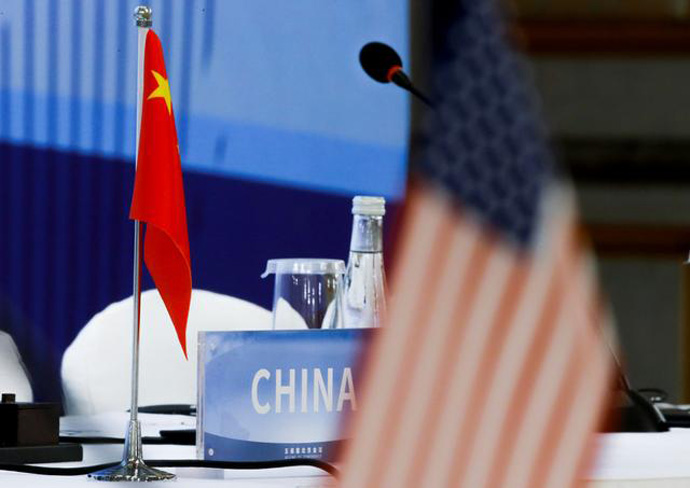Zheng Yu, Professor, Chinese Academy of Social Sciences
Jan 03, 2020
Under constant attack from various corners of the United States, China may have difficulty sustaining a new type of major-country relationship. Its policies are at a crossroad.
He Yafei, Former Vice Minister of Foreign Affairs
Jan 03, 2020
China and the United States need to economic and technological competition in a healthy and peaceful zone because it’s normal and necessary for progress.
He Yafei, Former Vice Minister of Foreign Affairs
Oct 10, 2019
A tragic sensibility after the experience of two world wars compelled the United States to establish a new international order backed by American power. After decades of relative peace and prosperity, however, this sensibility is waning – as the United States demonstrates a lack of collective will to maintain its position on the global stage. As China increasingly assumes the position of a world power, it must maintain its tragic sensibility and awareness of crisis.

An Gang, Adjunct Fellow, Center for International Security and Strategy, Tsinghua University
Oct 09, 2019
As U.S. policy has grown increasingly aggressive, China’s posture has shifted, with long-term effects.
Junyang Hu, Research Associate for U.S.-China PAX sapiens, One Earth Future Foundation
Sep 12, 2019
It’s only a matter of time before the United States loses its predominant position as the controller of international rhetoric and is supplanted by China as allies and partners lose confidence.

Steven W. Lewis, Director of China Studies Program, Baker Institute for Public Policy
Mar 27, 2017
Developments in the realms of outer space and energy/environment now present us the opportunity for three of the world’s great powers – China, Russia and the United States – to increase significantly international cooperation in the long run for two of the four global public commons: space and energy/environment. However, such improvements will not happen unless leaders in Washington, Beijing, and Moscow rethink historical notions of competition and conflict among them.
He Yafei, Former Vice Minister of Foreign Affairs
Mar 03, 2017
Economic cooperation and trade frictions will probably simultaneously increase as the new American government’s “buy American and hire American” focus as it seeks greater economic benefits with its trading partners. But there are many areas where the interests of China and the US converge, which the leaders of both countries clearly appreciate.
Yu Sui, Professor, China Center for Contemporary World Studies
Feb 27, 2017
While there are some variables in Trump diplomacy, variables do not necessarily equal uncertainties. Many of the forces affecting US diplomacy and global interactions are constant and predictable.
Zheng Yu, Professor, Chinese Academy of Social Sciences
Feb 24, 2017
Despite superficial appearances and some genuine outreach between Trump and Putin, the differences between these rival countries are too complex, too deep and too historic to quickly wash away, even if such a move was in American interests.
He Yafei, Former Vice Minister of Foreign Affairs
Feb 20, 2017
Major powers need to work together to push globalization forward in the right direction, with more equitable benefits for people in every country. Any action to gain geopolitical advantage at the expense of another major power will not only bring risks to global security but damage prospects for world economic growth.
Back to Top

- China-US Focus builds trust and understanding between the U.S. and China through open dialogue among thought leaders.
- Our Offerings
- Topics
- Videos
- Podcasts
- Columnists
- Research Reports
- Focus Digest
- Stay Connected
-
Thanks for signing up!
- Get the latest stories from China-US Focus weekly.